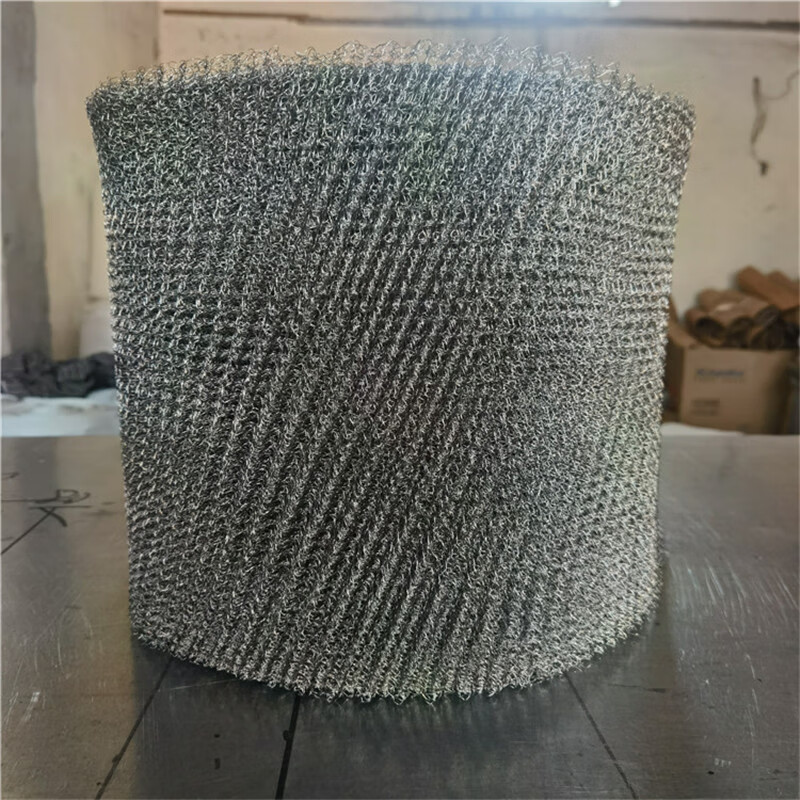Service Hotline
+86 18948275773+86 13632667260
There are various materials for gas-liquid filter screens, mainly including metal materials, plastic materials, fiber materials, and composite materials. The following is a detailed introduction:
1、 Metal material
Stainless steel wire: such as AISI201, 202, 301, 302, 304, 304L, 321, 316, 316L, etc. Among them, 304 stainless steel has good versatility and is widely used in equipment and components that require good comprehensive performance (corrosion resistance and formability); 316L stainless steel has better overall performance than 310 and 304 stainless steel due to its molybdenum content. It has better resistance to pitting corrosion, high-temperature creep strength, and corrosion resistance, making it suitable for more severe corrosive environments.
Pure nickel wire: It has good corrosion resistance, high temperature resistance, and oxidation resistance, especially in alkaline environments and certain specific chemical media, and is commonly used in situations where high corrosion resistance is required.
Pure titanium wire: with low density and high strength, it has excellent corrosion resistance, especially strong resistance to corrosive media such as seawater and chlor alkali. It also has good biocompatibility and can be used in some special chemical, medical and other fields.
Monel alloy: It is a nickel copper alloy with excellent corrosion resistance and seawater corrosion resistance, as well as good strength and toughness, which can maintain stable performance in high temperatures and harsh chemical environments.
Galvanized wire: A layer of zinc is coated on the surface of iron wire to prevent rust and corrosion. It is relatively inexpensive and commonly used in situations where corrosion resistance is not particularly high and cost control is strict.
Copper wire: It has good conductivity and thermal conductivity, as well as a certain degree of corrosion resistance. It will be used in some specific electrical and electronic equipment, as well as in gas-liquid separation applications that do not require high filtration accuracy.
Nickel titanium memory alloy wire: triggers shape memory effect through temperature or stress, causing deformation of the filter screen after blockage (such as pore expansion or contraction), using mechanical force to shake off or discharge impurities, achieving self-cleaning and reducing manual maintenance frequency. At the same time, in the petrochemical industry, traditional filter screens are used for filtering corrosive media, treating acid, alkali solutions, or sulfur-containing oil and gas to avoid corrosion and damage, and reduce the risk of leakage.

2、 Plastic material
PP (polypropylene): It has good corrosion resistance, acid and alkali resistance, and resistance to organic solvents. It is light in weight, low in cost, and has good chemical stability. However, its heat resistance is relatively poor, and it is generally suitable for gas-liquid filtration applications at low temperatures.
PC (polycarbonate): It has high strength, transparency, and heat resistance, good impact resistance, and can maintain stable performance over a wide temperature range. However, its chemical corrosion resistance is relatively weak, and it is widely used in some gas-liquid filters that require transparency and mechanical properties.
PE (polyethylene): It has good flexibility, low temperature resistance, and chemical corrosion resistance. It is inexpensive, but its strength and hardness are relatively low. It is commonly used in situations where filtration accuracy is not high and the working environment is relatively mild.
PVC (polyvinyl chloride): It has good corrosion resistance and mechanical strength, is inexpensive, easy to process and shape, but may release harmful substances in high temperatures or certain chemical media environments. It is generally used in some conventional gas-liquid filtration fields.
PTFE (polytetrafluoroethylene), commonly known as the "plastic king", has extremely excellent corrosion resistance, high temperature resistance, and self-lubricating properties. It hardly reacts with any chemical substances and can be used in various harsh environments, but it is expensive and difficult to process.
3、 Fiber material
Fiberglass: It has high strength, high temperature resistance, and chemical stability, with high filtration accuracy, and can effectively intercept small particles in vapor and liquid. However, fiberglass material is brittle and has poor flexibility. During use, attention should be paid to avoiding excessive bending and stretching.
Polypropylene fiber: It has good corrosion resistance, acid and alkali resistance, and microbial erosion resistance, as well as high filtration efficiency and breathability. It is lightweight and low-cost, and is a commonly used fiber material filter mesh.
4、 Composite material
Metal and plastic composite: Combining metal skeleton with plastic filter material, fully utilizing the advantages of high strength of metal and corrosion resistance, flexibility, etc. of plastic, it can withstand high pressure and temperature, and maintain stable performance in complex chemical environments, improving filtration effect and service life.
Metal and fiber composite: By utilizing the rigidity of metal and the high filtration accuracy and breathability of fibers, the filter mesh not only has good mechanical properties, but also achieves efficient gas-liquid separation. It is commonly used in some industrial fields that require high filtration performance.